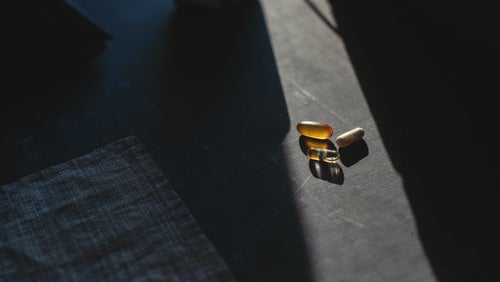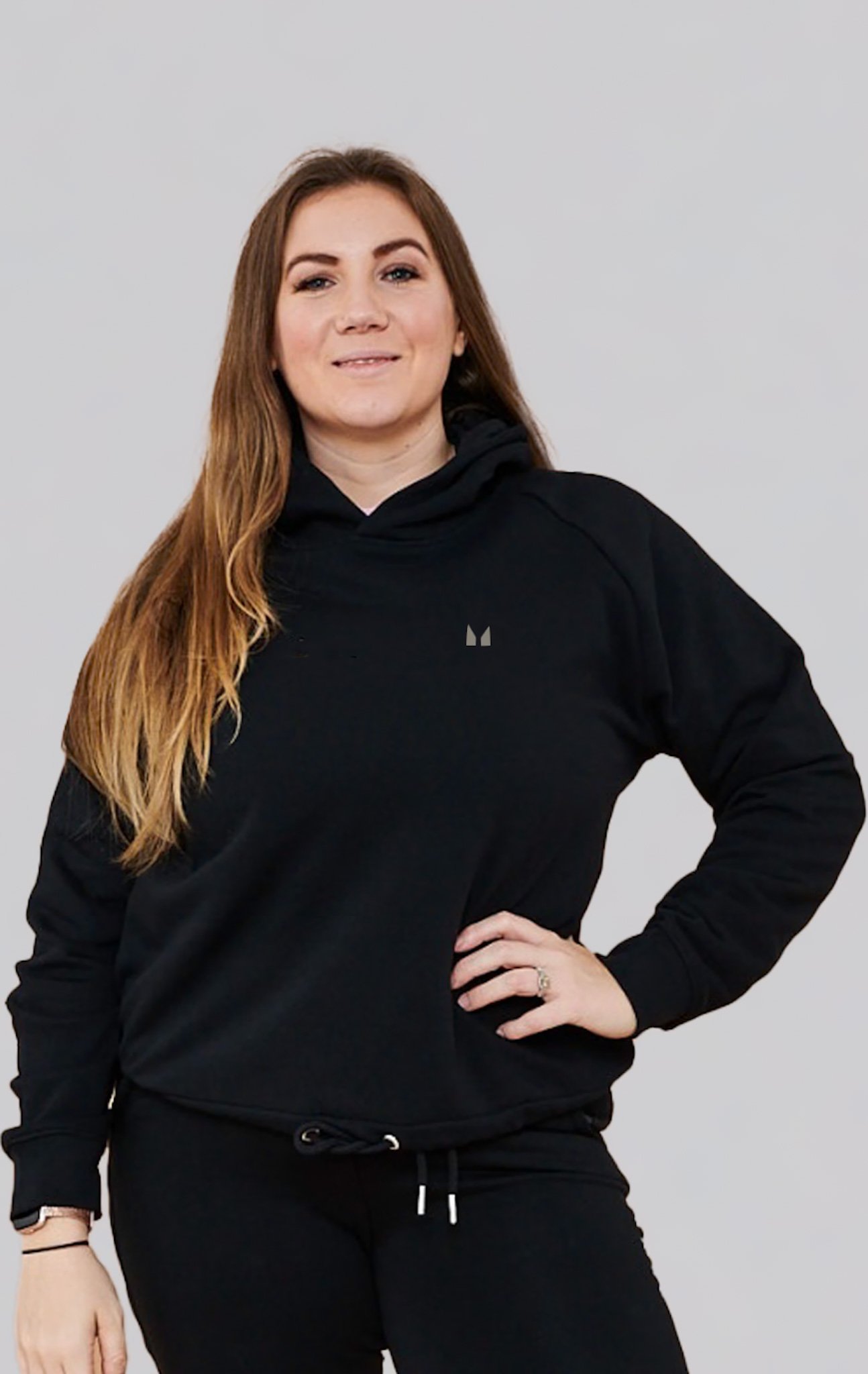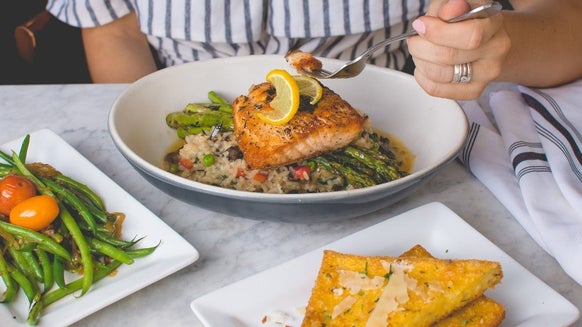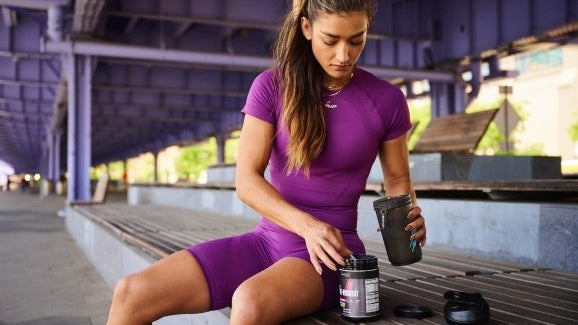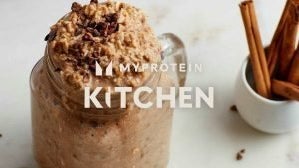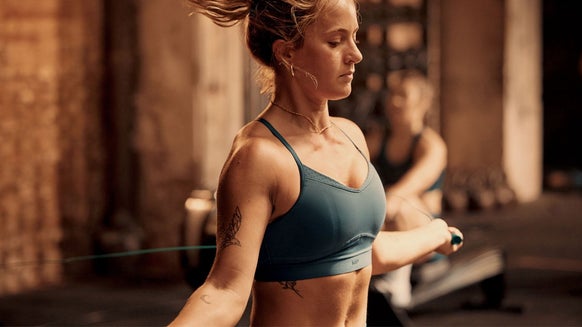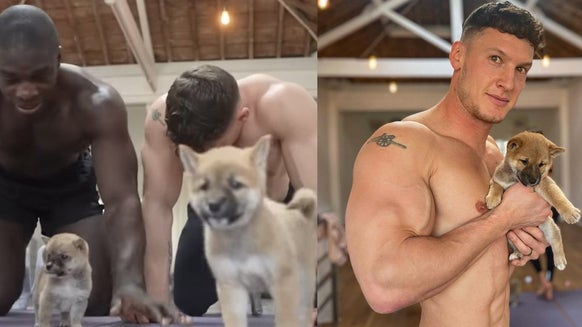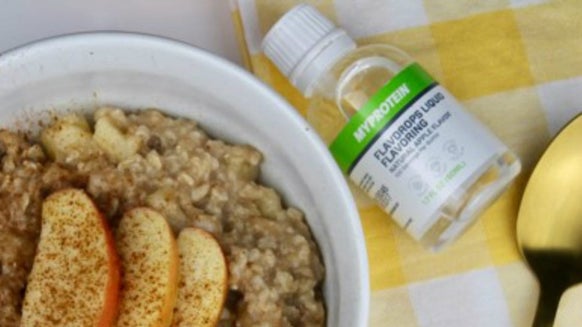 Try something new like hula hooping. Yep, it’s not just a children's toy.With the right movement and equipment (yes they come in different weights) you can add these into your weekly routine to help tone and strengthen your core and depending on what you do with the hoop, you can also work the rest of your body, too. To keep the hula hoop moving you need to build a strong core, and increase mobility in your hips. If you continue to practice and use the hula hoop, it is an excellent way to target and train your abdominal muscles, obliques, and hip muscles.Jump to:
Try something new like hula hooping. Yep, it’s not just a children's toy.With the right movement and equipment (yes they come in different weights) you can add these into your weekly routine to help tone and strengthen your core and depending on what you do with the hoop, you can also work the rest of your body, too. To keep the hula hoop moving you need to build a strong core, and increase mobility in your hips. If you continue to practice and use the hula hoop, it is an excellent way to target and train your abdominal muscles, obliques, and hip muscles.Jump to: Getting Started With The Hula Hoop
Did you know there are 3 different types of the hula hoop, and it’s important you choose the correct one for you. You need to make sure your hoop is the correct size and weight for you, your hula hoop is advised to measure vertically from the floor approximately to your navel or the top of your hip bone but depending on your torso size you may want to adjust either way. Be mindful of not moving to heavier weighted hoops until you have mastered the basics. Regular Hoop:These are great for beginners and are not weighted to allow you to get to grips with the movement. The bigger the hoop, the easier it is to use and the diameter of the right-size hoop should be between the height of your waist and your breastbone.
Weighted Hoop:These hoops are as it says in the name weighted - which means they are a little bigger and heavier than the Regular hoops. As with weight training by adding weight it will increase the workload on the body and help to develop a stronger core. Some find it easier to start with these as the added weight is easier to control but ensure you master the spin before adding in variations.
Polypro Hoop:These high-speed hoops are for those who want to take speed and mobility to the next level. These hoops are lighter, faster, and bouncier than regular and weighted hoops. They are great for adding more movements off the waist but also for refining your speed and precision.
Our Top 5 Hula Hoop Exercises
Got your hoop and you’re ready to swing into action! These are our top 5 hula hoop exercises that will get you building a strong core, and increasing mobility in your hips in no time. Throw on your brightest MYP leggings, pop some music on and get ready to have some fun.
Make Sure You Warm-Up
As with any workout, it’s essential that you warm up and get your body ready. Hula hooping requires your entire core, as well as additional muscles on your back chain and hips, use the below movements to warm up and get ready to smash your hula session.
Hula body fold
Step inside your hoop and hold it in your hands so your arms are at full length at your side. Start the movement by taking a deep breath bending at the elbows, and lift your hoop up above your head extending the arms straight, slowly breath out and lower the hoop down around your body until it is close to the ground letting your head and torso hang. Slowly raise back up to starting position and repeat 5 or more times, using your breathing as a rhythm.
Hula body fold with arm stretch
Start by holding your hoop vertically behind your back and finding a comfortable handgrip on either side of your body with your elbows bent (Holding the left side of your hoop with your left hand and holding the right side of the hoop with your right hand). Start the movement by bending forward slowly and carefully pushing your hoop toward the ground so you are stretching your arms out into a straightened position.
Hula Body Tilt
Start by holding your hoop vertically behind your back and finding a comfortable handgrip on either side of your body with your elbows bent (Holding the left side of your hoop with your left hand and holding the right side of the hoop with your right hand). Start the movement by tilting your body from side to side to gently open up your sides.
Hula body twist
Step inside your hoop and hold it in your hands so your arms are at full length at your side at waist height. Start the movement by slowly and gently twisting your torso from the hip, bringing your upper body and hoop with you. Make sure to keep your feet centred on the ground, left and right. To deepen the stretch lift one heel then the other if it gives you more freedom of movement in your lower back.
Hula Hoop Workout
1. Waist Hooping - Neutral, Forward and Side stance
Muscles Worked: Core, Arms, legs
The bread and butter of Hula Hooping, master this move before moving on. Stand with your feet shoulder-width apart and planted firmly, hold your arms up with your hands by your chest to add more resistance, hold your hands in fists, and hold your elbow high to work the biceps. Start the movement by spinning the hoop and pushing from your belly button, in a back and forth motion with your hips. Keeping your chest up and lifting with your shoulders pulled back and down. The more momentum you give the hoop to start the easier it is to keep it up, if your hoop starts to fall down, hoop faster. You can also soften your knees slightly, bringing your waist closer to the hoop. Work for around 30-60 secs Then stop the hoop, and reverse it, making sure to adopt the same position as before but wind the hoop up in the opposite direction. This will make sure you are working both sides of the core as well as testing yourself as it can be difficult. You can also change your stance to add a level of difficulty:Forward Stance - Place your right or left foot forward, holding the hoop against your lower back. Keeping your pelvis tucked, shoulders squared, and chest lifted, bend your knees slightly and repeat the above movement by shifting your weight quickly between your front and back legs, moving your hips backward and forward. Make sure to change the leading leg.Side Stance - Stand with your feet a bit wider than shoulder-width apart and give the hoop a good spin, and rock your hips from side to side so the hoop hits on the sides of your waist. Make sure your abs are tight, with chest and head lifted. The more power you put into each push, the faster the hoop will go.
2.Waist Hooping - The Cross
Muscles Worked: Core, Arms, legs
Once you’ve mastered the Waist hooping it's time to add another level. Stand with your feet together and hold your arms up and straight out to the side - Imagine you are on a cross or Christ the Redeemer statue in Rio. Start the movement by spinning the hoop and pushing from your belly button, in a back and forth motion with your hips. Keeping your chest up and lifting with your shoulders pulled back and down also keep your fingers together with your palms facing forward. The more momentum you give the hoop to start the easier it is to keep it up, if your hoop starts to fall down, hoop faster. You can also soften your knees slightly, bringing your waist closer to the hoop.
Work for around 60-120 secs Then stop the hoop, and reverse it, making sure to adopt the same position as before but wind the hoop up in the opposite direction. This will make sure you are working both sides of the core as well as testing yourself as it can be difficult. Remember to keep your chest lifted and strong, the stretch will elongate the abs and get them to work harder so there is a tendency to bend forward or arch the back.
3. Waist Hooping with Ballet legs
Muscles Worked: Core, Arms, legs
Choose a leg to start with and imagine you are a ballet dancer. Start with your feet together under your hips and start the movement by spinning the hoop and pushing from your belly button, in a back and forth motion with your hips. Keeping your chest up and lifting with your shoulders pulled back and down holding your arms up with your hands by your chest to add more resistance, hold your hands in fists, and hold your elbow high to work the biceps. Shift your weight into your non-working leg, while the other leg is straightened and points forward with pointed feet, After 20 rotations point your toe to the side, then 20 rotations later take it to the back to the starting position. You can let your big toe rest on the ground for stability or lift your foot above the ground to work the abs harder.Work for around 4 rounds before switching legs and repeating. Remember to keep your chest lifted and strong and hips square, and try not to place any weight on the moving leg. Remember to practice spinning the hoop in both directions. 4. Waist Hooping with a squat
Muscles Worked: Core, arms, legs, glutes
Let's get our legs and booty involved now we’ve mastered the previous movements. Stand with your feet wider than shoulder-width apart and planted firmly, hold your arms up and out in front of you around chest height. Start the movement by spinning the hoop and pushing from your belly button, in a back and forth motion with your hips. Keeping your chest up and lifting with your shoulders pulled back and down.Once you have the hoop spinning bend at the knees and slowly lower yourself down into a squat position. Back sure to keep your chest lifted and shoulders back and down with no leaning forward. Drive your knees out and engage your inner thighs to keep you balanced, once you hit 90 degrees slowly return to standing but drive up through your feet and repeat.Work for around 10-15 reps and reverse it, making sure to adopt the same position as before but wind the hoop up in the opposite direction. This will make sure you are working both sides of the core as well as testing yourself as it can be difficult. Why not try a variety of squat positions - Narrow, neutral, or even sumo. 5. 360 spin
Muscles Worked: Core, Arms, legs
Ok, let's have some fun. Stand with your feet shoulder-width apart and planted firmly and start the movement by spinning the hoop and pushing from your belly button, in a back and forth motion with your hips. Keeping your chest up and lifting with your shoulders pulled back and holding your arms up with your hands by your chest. Shift your weight onto your inner foot and use your outer foot to pivot around the opposite way to which your hoop is spinning. You can start by using smaller and more frequent steps to get yourself around a full 360 degrees while you get used to the movement.Work for around 60-120 secs Then stop the hoop, and reverse it, making sure to adopt the same position as before but wind the hoop up in the opposite direction. This will make sure you are working both sides of the core as well as testing yourself as it can be difficult.
By spinning the opposite direction as your hula hoop it will get your heart rate up and improves balance, coordination and timing.
What Are The Benefits Of Exercising With A Hula Hoop?
Hula hooping is the perfect at-home workout that gets your whole body involved, from working your core, legs, and arms to focusing your brain to engage and learn new movements and tricks. You can raise your heart rate to get a cardio element as well as build strength and mobility.Hula hooping can help to burn calories
If you're looking for something different to add to your routine as part of your healthy weight loss journey or even just to burn a few calories then hula hooping is comparable to other dance aerobic activities such as dancing. It’s been reported that on average, women can burn about 165 calories, and men 200 calories, during a 30-minute hooping session.This can be a new and challenging cardio movement for those who don’t wait to get running or on a bike especially now it's getting colder.
Hula exercises can improve balance and strengthen your core
Having a strong core is so important for not just working out but everyday life. A stronger core means you are more stable and have better posture overall. Hooping makes you engage your core throughout any workout meaning you are strengthening it in its entirety. The better you core the more control you have over your body’s movements which means you will be more balanced.Hula hooping can help to Improve cardiovascular fitness
Hooping is a great at home or even park workout that pushes you aerobically. This means that it works your heart and lungs, and improves the flow of oxygen throughout your body. Which in turn can lower your risk of heart disease and diabetes, improve cholesterol levels, improve brain function, and even reduce stress.By switching up the pace of your hooping you can add a HIIT based element and will help you push your heart rate between zones which will aid in burning calories and boosting your heart health.
Hula hooping can help to Improve mobility
Hooping requires you to control and move your hips in a variety of directions, which will help to loosen and stretch your hips and upper legs muscles to increase your mobility.Better mobility helps in all aspects of training and allows you to get into a deeper and better position when lifting, stretching, or performing everyday tasks. The more mobile your joints the least likely you are to injury. Hula hooping isn’t too expensive and is something you can do anywhere
A basic hoop isn't too expensive starting at around £12 for a basic hoop, and with a lot of us stuck at home with no gym it offers a fun alternative as well as a challenge to try something new. The best part its portable, no matter where you go your hoop can go with you which means NO EXCUSEs.
Take Home Message
So if you’re looking for something new to train or a little challenge that will push your whole body, build a strong core as well as increase mobility then it’s time to give Hula hooping a go. It’s a fun way to burn calories, improve your balance, strengthen your core, and boost your cardiovascular fitness. Why not get your family or friends involved too and see who can do the best moves.
Enjoy this article?READ THESE NEXT:
Amy has a BSHons in psychology where she was a sports scholar, as a sportswoman for over 18 years playing rugby and netball up to a national level.
She is a level 3 qualified personal trainer with a diploma in sports and exercise nutrition. She has been training in a gym and weightlifting for over 13 years, participating in CrossFit, Bodybuilding and many other events such as hyrox, triathlons and marathons.
She has a passion for extending her learning through latest studies and with a great passion for getting more women into fitness.
Amy has created programs as a coach for the last 4 years as well as around sport and fitness for Red Bull, Hyrox, Spartan UK, as well as Mental Movement UK around how fitness can help improve your mental health.
She is also a advocate for female confidence and being awareness to mental health and body confidence. She can be found here – https://www.instagram.com/dreams_and_dumbbells/?hl=en





